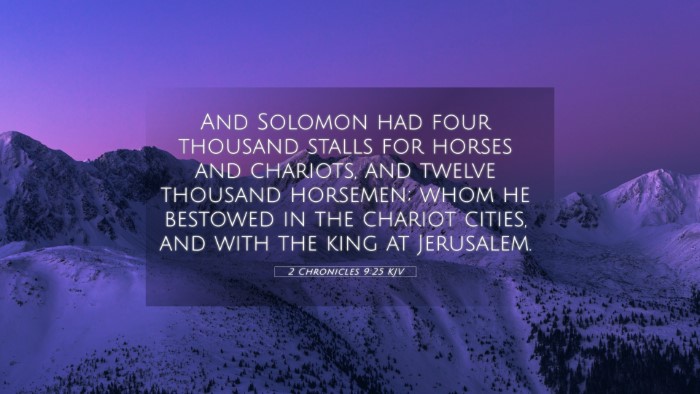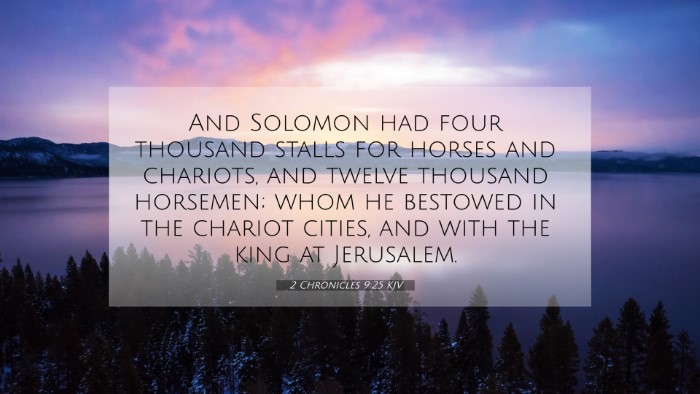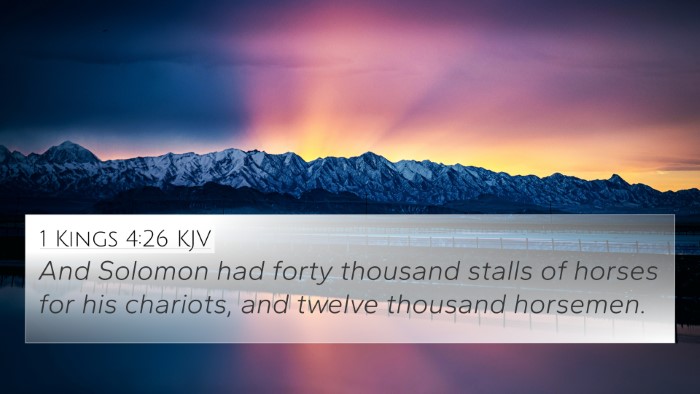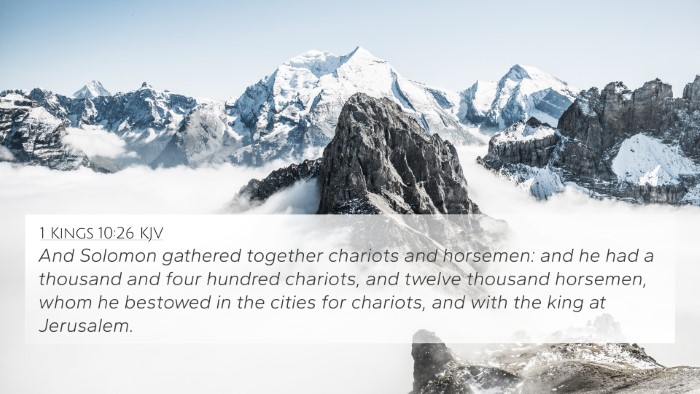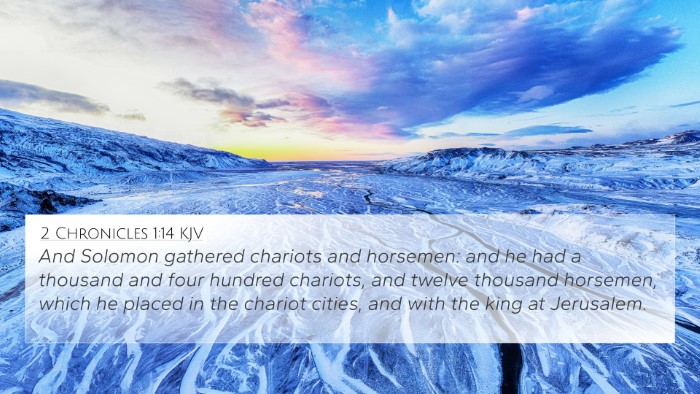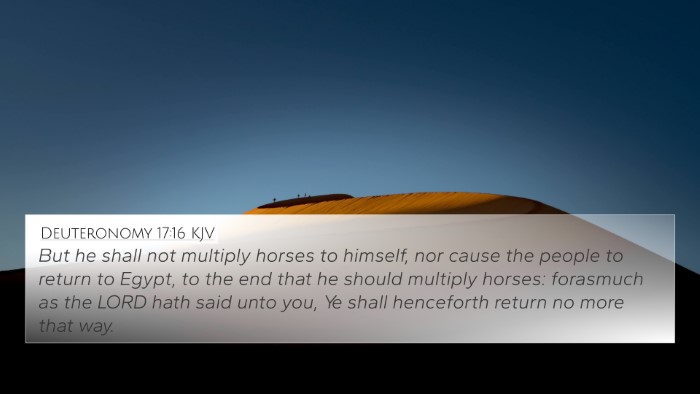Understanding 2 Chronicles 9:25
Verse Text: “And Solomon had four thousand stalls for horses, and twelve thousand horsemen, whom he bestowed in the chariot cities, and with the king at Jerusalem.”
Overview of the Verse
The verse describes the impressive military resources of King Solomon, emphasizing his wealth, power, and organizational skills in managing his kingdom's cavalry. This portrayal is not only significant historically but also serves to illustrate spiritual truths regarding leadership and divine favor.
Commentary Insights
This verse has been explored in depth by prominent biblical commentators such as Matthew Henry, Adam Clarke, and Albert Barnes. Here are their insights woven together:
- Matthew Henry:
He emphasizes the wealth and prosperity of Solomon’s reign, noting that the mentions of horses and chariots are indicative of military strength and stability. Henry points to the significance of these resources in the context of God’s promises to Israel, reminding us that true power comes from reliance on God rather than mere military might.
- Albert Barnes:
Barnes discusses the scale of Solomon’s cavalry, noting how this was a common practice among ancient monarchs to indicate their strength. He also draws attention to the "chariot cities" where the horsemen were stationed, highlighting the strategic foresight of Solomon in organizing his military efficiently.
- Adam Clarke:
Clarke interprets the dimensions of Solomon's military capabilities, contrasting them with previous rulers of Israel. He suggests that Solomon's multitude of horses indicates not only wealth but also his desire for stability and control during a time of relative peace, showcasing the duality of leadership as protector and possessor.
Thematic Connections
The verse acts as a narrative bridge that underscores the themes of power, divine favor, and earthly riches. It encourages believers to reflect on how they utilize their own resources, both materially and spiritually, in the service of God's kingdom.
- Bible Verse Cross-References:
- 1 Kings 10:26 - Discusses Solomon's collection of chariots and horsemen.
- 2 Chronicles 1:14 - Highlights the initial acquisition of riches and authority.
- Psalm 20:7 - States that some trust in chariots, but we will trust in the name of the Lord.
- Zechariah 10:3 - Comments on God’s concern for Judah and the horses.
- Isaiah 31:1 - Talks about the folly of relying on horses and chariots rather than God.
- Deuteronomy 17:16 - Indicates the prohibition for kings to accumulate horses, linking to Solomon’s choices.
- Matthew 5:5 - Blessed are the meek, foreshadowing the depth of true strength beyond mere military power.
Lessons from Solomon's Military Organization
The detailed account of Solomon’s chariot cities and horsemen can serve as a powerful lesson in leadership:
- Deliberate Preparation: Solomon prepared his kingdom for both peace and potential conflict, highlighting the importance of foresight in leadership.
- Trusting in God: Despite his military might, Solomon was to rely on God for strength and direction, a lesson that resonates for leaders today.
- Your Resources Matter: The extent of Solomon's resources reminds us that how we manage our own resources impacts our effectiveness in service and leadership.
Inter-Biblical Connections
2 Chronicles 9:25 prompts believers to consider connections between various scripture passages, thus encouraging a holistic approach to Bible study:
- Identifying Connections: By drawing parallels between the military might of Solomon and the peace-promoting teachings of Jesus (see Matthew 5:9), readers can explore how God’s peace often triumphs over earthly powers.
- Comparative Analysis: Examining the accounts of kings in both Testaments reveals a deeper understanding of God’s sovereignty over nations and individuals alike.
- Thematic Connections: The theme of trust in God’s provision through Jesus' parables relates back to the dependence on divine guidance rather than human strength.
Conclusion
In summary, 2 Chronicles 9:25 is not merely a historical account; it is a profound teaching that encourages discernment in how we view power, wealth, and divine favor. The insights provided by esteemed commentators, along with the thematic and inter-Biblical connections brought forth, enrich our understanding of the scripture's relevance today.

